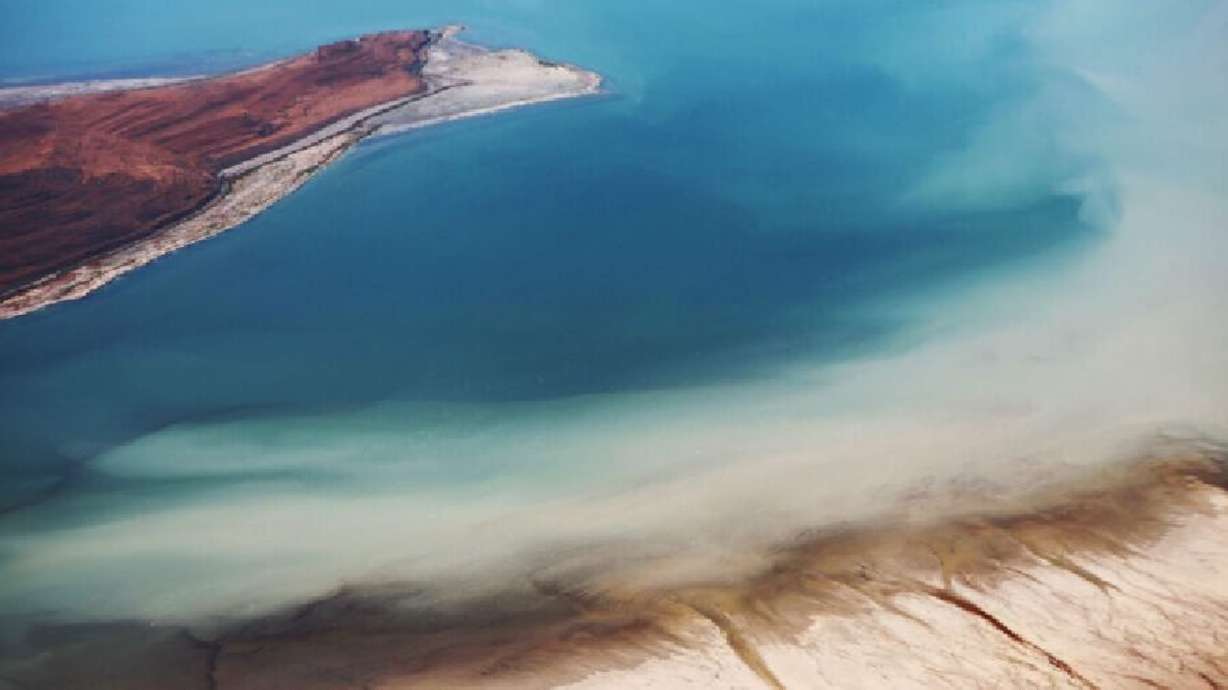Estimated read time: 3-4 minutes
This archived news story is available only for your personal, non-commercial use. Information in the story may be outdated or superseded by additional information. Reading or replaying the story in its archived form does not constitute a republication of the story.
Editor's note: This article is published through the Great Salt Lake Collaborative, a solutions journalism initiative that partners news, education and media organizations to help inform people about the plight of the Great Salt Lake.
SALT LAKE CITY — A battle over where wastewater goes is pitting the needs of cities against the shrinking Great Salt Lake.
Currently, cities in the Great Salt Lake basin use water treatment facilities to scrub wastewater of algae and pollutants before sending it down toward the lake. But 45 cities and public utility companies have applied to recycle that wastewater to irrigate fields and even flow from the tap, according to the Salt Lake Tribune.
They're not alone: cities across the American West from California to Colorado have turned to wastewater recycling as a viable hydration option in the face of worsening drought.
How could this affect the Great Salt Lake?
State Rep. Casey Snider told KSL NewsRadio he's "disappointed" over these applications.
"The evidence that I have seen," said Snider, "is that if we took all of the water that is going into the lake through wastewater discharge and eliminated it or reapplied it to other uses, the lake would drop by an additional 10 to 12 feet."
That's significant for a lake with a maximum depth of 35 feet.
The new wastewater law
To get ahead of this, Snider pushed a bill through the Legislature earlier this year that would put firmer requirements on the reuse of wastewater.
"For every drop I've decided, as a city, that it's financially viable for me to reuse," said Snider, "I have to make sure an equal drop is flowing down the same canal, or the same river, that I have taken this water from to reuse it."
The 45 applicant cities are hoping to get more wastewater than allowed under the law. Depleting aquifers could be causing cities to look elsewhere for their growing needs, and drought conditions are also lowering the amount of water cities have to play with.
Snider adds that the municipalities trying to get around this rule are not doing it for "nefarious" reasons, but because it costs a lot to clean wastewater and not put it toward residents.
Great Salt Lake Commissioner Brian Steed also expressed concern about the issue, acknowledging that it could cost the lake "a substantial amount of water." However, he said the state engineer at the Utah Division of Water Rights has "broad statutory authority" in this case. The Office of the Great Salt Lake Commissioner has some power to override lake policy, but not the state engineer.
"I think we, as a state, have to have an active conversation regarding if that's sound policy, given the fact that we're trying really hard to save the Great Salt Lake," he told Great Salt Lake Collaborative reporters on Wednesday. "Ultimately, it's going to be a question for the state engineer's office, I think, in terms of how that goes forward."
For now, these applications await a decision from the state engineer.
Contributing: Carter Williams









